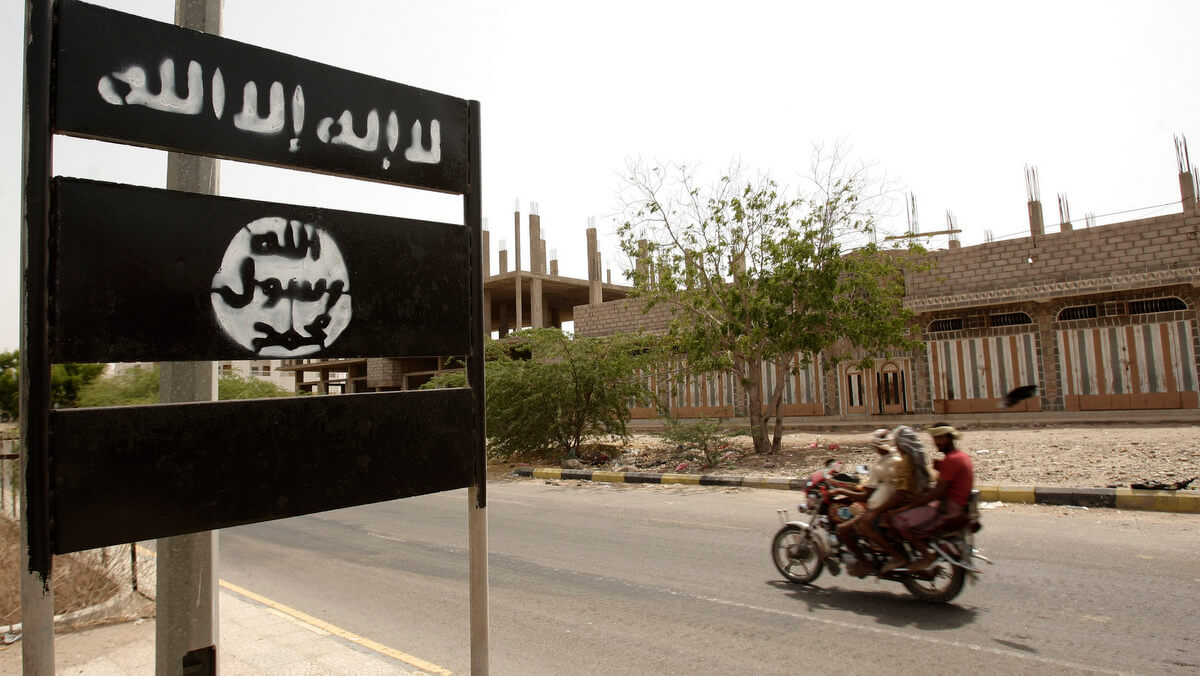SANA’A, YEMEN — The Saudi Arabia-led coalition in Yemen has been revealed to have reached a series of secret deals with Al Qaeda in the Arabian Peninsula (AQAP) and to have even recruited members of the terrorist group to fight on its behalf against Yemeni resistance groups, according to a new report in the Associated Press.
According to the AP’s investigation, the Saudi-led coalition — which enjoys the support of both the United States and the United Kingdom — has paid large sums to Al Qaeda commanders in exchange for their leaving key locations throughout coalition-controlled Yemen, while also allowing the terror group’s forces to retreat with all of their weapons, cash and supplies without fear of reprisal.
The investigation further found that the international coalition actively recruited hundreds of Al Qaeda fighters to join the coalition’s ranks as foot soldiers in a war that has spawned the world’s worst humanitarian crisis. Those fighters were deliberately sought out for their reputation of being “exceptional” on the battlefield.
Senior government figures involved in the coalition’s dubious deal-making later confirmed to the AP that the United States had been informed of the arrangements and had even avoided conducting airstrikes against Al Qaeda militants in Yemen. However, the Pentagon vigorously denied complicity with AQAP militants to the AP when requested to comment, instead stating that the Trump administration has worked to “disrupt its [AQAP’s] ability to use ungoverned spaces to recruit, train and plan operations against the U.S. and our partners across the region.”
al Qaeda: sometime enemy, sometime ally, sometime pretext

An al Qaeda logo is seen on a street sign in the town of Jaar in southern Abyan province, Yemen. Hani Mohammed | AP
The facts, however, stand in stark contrast to the Pentagon’s assertions, as evidence of the coalition’s tacit support for Al Qaeda has been known for some time. As a result of the coalition’s support and the chaos caused by the conflict itself, AQAP — once called “the most dangerous regional node in the global jihad” by the CIA — has “become stronger than at any time since it first emerged almost 20 years ago,” according to a Reuters investigation that was published last year.
Yet, AQAP’s rise to prominence in the chaos of war-torn Yemen is hardly a coincidence, as both the United States and Saudi Arabia have directly aided its ascendance. For instance, even prior to the beginning of the war in Yemen in March 2015, the U.S. had known that its deadly drone war in the country — ostensibly carried out to reduce AQAP’s effectiveness — was actually strengthening the terror group’s presence.
Then, once the conflict began, the U.S. turned a blind eye to the coalition’s alliances with AQAP in major offensives and even the coalition’s offering of weapons and cash to the group. Even when the Saudi-backed government of Yemen sent al-Qaeda members to represent it in peace talks held in Geneva, the U.S. continued to give its full backing to the Saudi-led coalition, selling the coalition billions in weapons and supplying military and logistical assistance.
The U.S.’ publicly stated position on Al Qaeda notwithstanding, Washington has often used the group’s presence as a pretext for military operations and even aided the group in service to larger foreign policy agendas. As MintPress reported last year, the U.S. has no qualms about aiding AQAP as long as the group’s presence suits its geopolitical agenda. Indeed, the presence of AQAP in Yemen has been used to justify a slow build-up of U.S. military assets and troops in that country for years, all actually aimed at the Yemeni resistance that has managed to resist the well-armed and well-funded coalition for over three years.
Top Photo | A group of suspected al-Qaeda militants accused of killing an army general in a suicide bombing stand trial at a state security court in Sanaa, Yemen, in this April 22, 2014 photo. Hani Mohammed | AP
Whitney Webb is a staff writer for MintPress News and a contributor to Ben Swann’s Truth in Media. Her work has appeared on Global Research, the Ron Paul Institute and 21st Century Wire, among others. She has also made radio and TV appearances on RT and Sputnik. She currently lives with her family in southern Chile.
The post US-Backed Saudi Coalition “Cut Deals” With Al Qaeda’s “Most Dangerous” Branch in Yemen appeared first on MintPress News.
